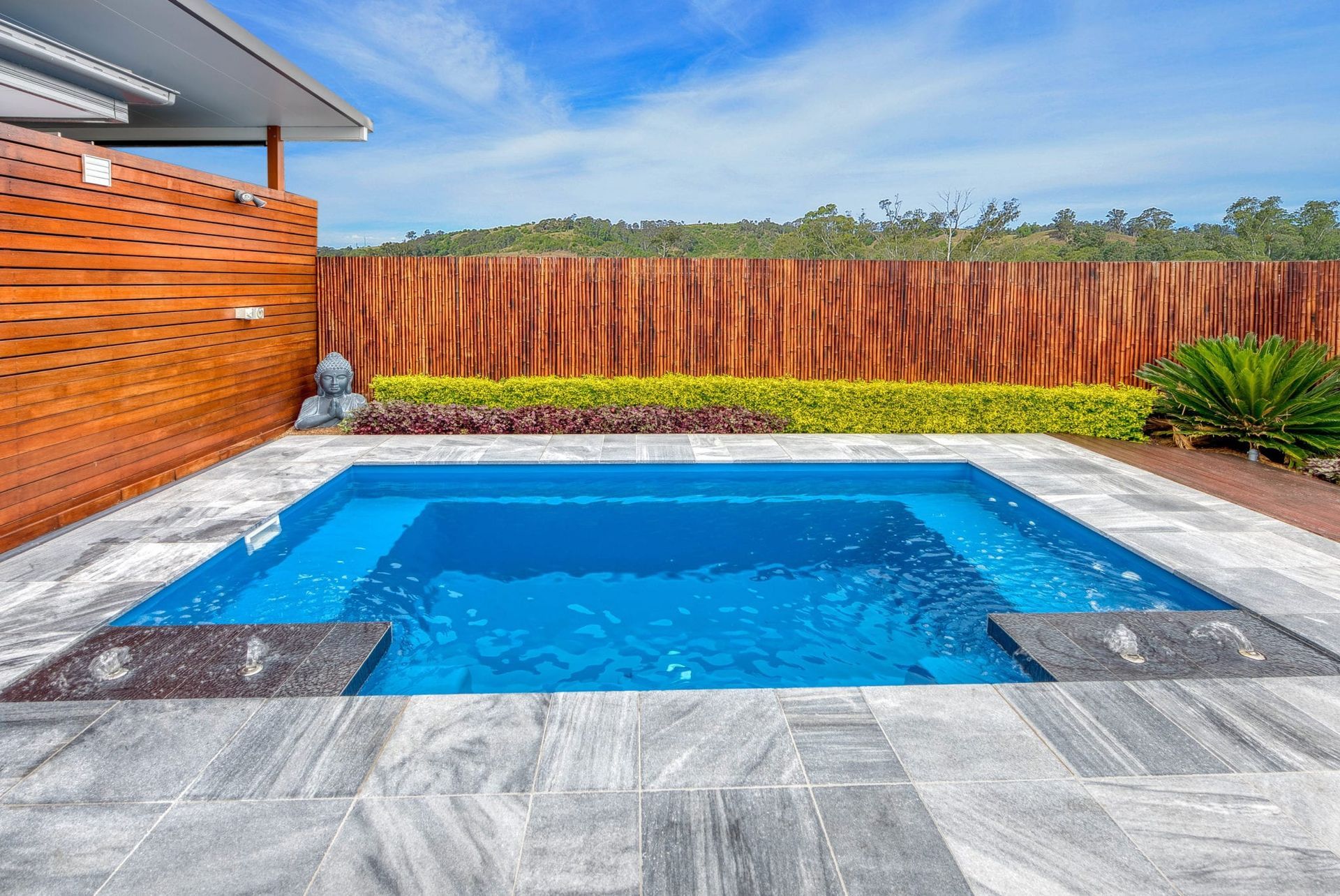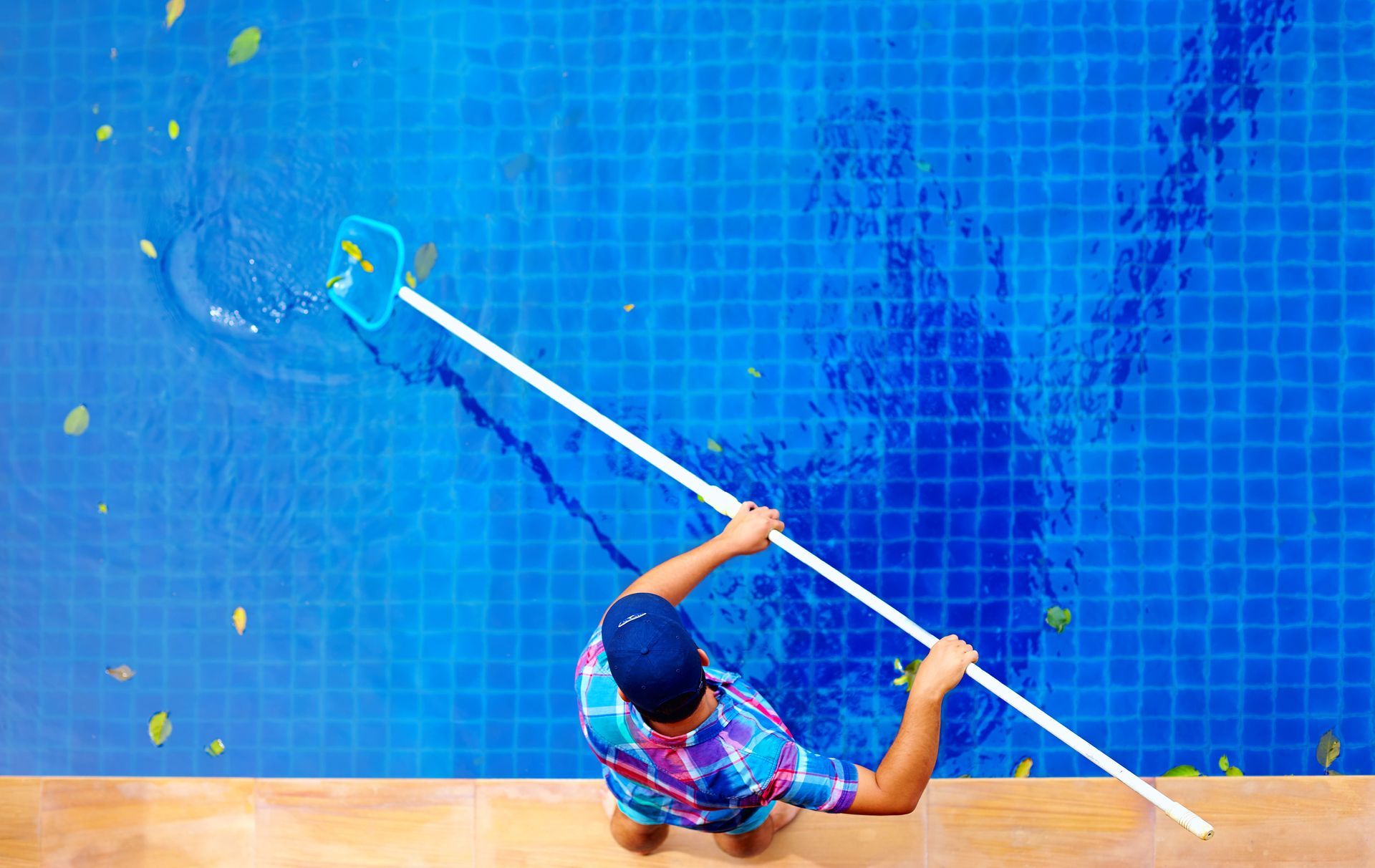Fibreglass Pools vs Concrete Pools: Best Home Choice
Choosing the right pool for your home is more than just a decision, it's a journey. It's about envisioning your ideal summer afternoons, picturing the joy on your children's faces, and imagining the serene waters that could transform your backyard into a personal oasis. The question is, should you opt for fibreglass pools or concrete pools?
This comprehensive guide will delve into the advantages and drawbacks of each, helping you navigate your way to the perfect pool.
Key Takeaways
- Understanding the Differences: Fibreglass and concrete pools each have their unique advantages and drawbacks. Fibreglass pools are cost-effective, quick to install, and easy to maintain, but they offer limited design options. On the other hand, concrete pools are highly customisable and can accommodate unique designs, but they require more time and money for installation and maintenance.
- Making an Informed Decision: Choosing the right pool depends on various factors, including your budget, design preferences, and maintenance capabilities. It's essential to understand the long-term costs and commitments associated with each type of pool.
- Valuing Personal Preference and Lifestyle: Ultimately, the best pool for you is the one that suits your lifestyle and personal preferences. Whether you value cost-effectiveness and ease of maintenance or customisability and design flexibility, both fibreglass and concrete pools can provide a wonderful addition to your home.
Choosing A Fibreglass Pool
Fibreglass swimming pools in Australia have been gaining popularity for their unique advantages. But what exactly makes them stand out?
Advantages of Fibreglass Pools
Cost-effectiveness: One of the most appealing aspects of fibreglass pools is their cost-effectiveness. They typically have a lower initial cost compared to concrete pools, making them an attractive option for those on a budget.
Quick installation: Time is of the essence, and fibreglass pools shine in this regard. Their pre-made designs allow for quick installation, meaning you can dive into your new pool sooner than you might think.
Gentle surface: The smooth surface of fibreglass pools is gentle on the skin, reducing the risk of scrapes and scratches. This makes them a great choice for families with young children or for those who enjoy long, leisurely swims.
Insulation properties: Fibreglass pools have excellent insulation properties, which can help to keep your heating costs down. This is particularly beneficial in cooler climates where heating may be required for a significant portion of the year.
Cleanliness and maintenance: Fibreglass pools are easy to clean due to their smooth surface, which is resistant to algae growth. This can reduce the amount of time and money spent on pool maintenance.
Environmental impact: Fibreglass pools are often praised for their lower environmental impact compared to concrete pools. They require fewer chemicals for maintenance and have a longer lifespan, reducing their overall environmental footprint.
Durability: Despite their lower cost, fibreglass pools don't compromise on durability. They are designed to withstand the elements and can provide many years of enjoyment with proper care.
Drawbacks of Fibreglass Pools
However, fibreglass pools are not without their limitations. Here are a few factors to consider:
Limited design and colour options: Fibreglass pools are manufactured in pre-made designs, which can limit your options when it comes to design and colour.
Size limitations: Due to transportation constraints, fibreglass pools are typically limited in size. If you're dreaming of a large, expansive pool, a fibreglass pool might not be the best fit.
Need for a crane: Installing a fibreglass pool often requires a crane, which can add to the installation cost and may not be feasible in all properties.

Choosing A Concrete Pool
Concrete pools, on the other hand, offer a different set of advantages and drawbacks. Let's dive into the details.
Advantages of Concrete Pools
Customisability: The biggest selling point of concrete pools is their customisability. They can be tailored to any shape, size, or design, allowing you to create a pool that perfectly fits your vision.
Variety of surface finishes: Concrete pools offer a variety of surface finishes, including plaster, aggregate, and tile. This allows you to customise the look and feel of your pool to match your aesthetic preferences.
Flexibility in shape and colour: Unlike fibreglass pools, concrete pools can be designed in any shape or colour. Whether you want a classic rectangular pool or a unique freeform design, a concrete pool can make it happen.
Custom additions: Concrete pools can accommodate custom additions like built-in spas, waterfalls, and tanning ledges. This flexibility allows you to create a truly unique and personalised pool experience.
Compatibility with natural poolscapes: If you're dreaming of a natural poolscape with rock features and lush landscaping, a concrete pool can be an excellent choice. Their flexibility in design allows them to blend seamlessly with natural surroundings.
Option for waterline tiles: Concrete pools offer the option for waterline tiles, which can add a touch of elegance and make cleaning the waterline easier.
Drawbacks of Concrete Pools
Despite their flexibility and customisability, concrete pools come with their own set of challenges:
Longer installation time: Concrete pools take longer to install than fibreglass pools. This means you'll need to plan ahead and be prepared for a significant construction period.
Higher cost: Concrete pools typically have a higher initial cost than fibreglass pools. They also require more ongoing maintenance, which can add to their lifetime cost.
Higher ongoing maintenance: Concrete pools require more maintenance than fibreglass pools. They need to be resurfaced every 10-15 years, and their porous surface can be more prone to algae growth.
Perceived colder temperature: Concrete pools can feel colder than fibreglass pools because they don't insulate the water as well. This could potentially lead to higher heating costs.
Making the Decision
Choosing between fibreglass and concrete pools is a personal decision that depends on your specific needs, preferences, and budget. Here are a few factors to consider:
Your Budget: Consider both the initial cost and the ongoing maintenance costs of each type of pool.
Design preferences: If you have a specific design in mind, one type of pool may be better suited to your vision.
Maintenance capabilities: Consider how much time and effort you're willing to put into pool maintenance.
Fibreglass pools generally require less maintenance than concrete pools.
Personal preference: Ultimately, the best pool for you is the one that you'll enjoy the most. Consider your lifestyle, your swimming habits, and your vision for your backyard.
Comparisons From Pool Experts
Expert opinions can provide valuable insights into the fibreglass vs concrete pool debate. They can debunk common misconceptions, highlight factors you might not have considered, and help you make a more informed decision. So, why not just call the expert at Coast Life Pools on
0432 826 107
Real-life Experiences
Hearing from people who have chosen fibreglass or concrete pools can also be enlightening. Their experiences can give you a realistic idea of what to expect from each type of pool, from installation to maintenance to enjoyment, so why not ask a friend or two.
Frequently Asked Questions
Conclusion, A Pool Might Just Be A Personal Preference
Ultimately, the choice between fibreglass and concrete pools depends on your personal preference and lifestyle. Both types have their advantages and drawbacks, and the best choice is the one that meets your specific needs and expectations.
Whether you choose a fibreglass pool for its cost-effectiveness and ease of maintenance, or a concrete pool for its customisability and design flexibility, you're sure to enjoy countless hours of fun and relaxation in your new pool.




